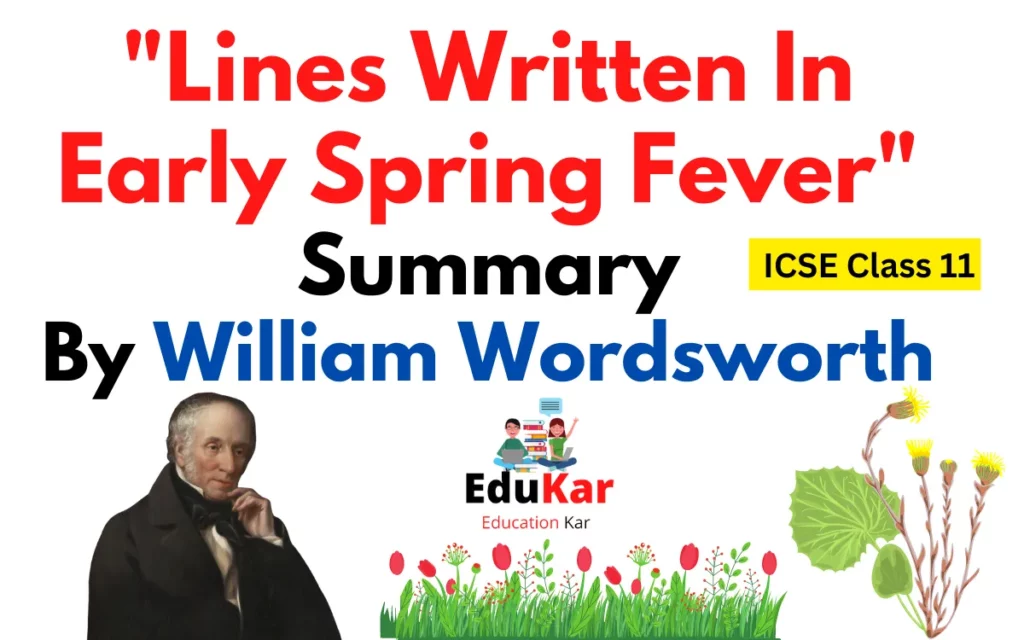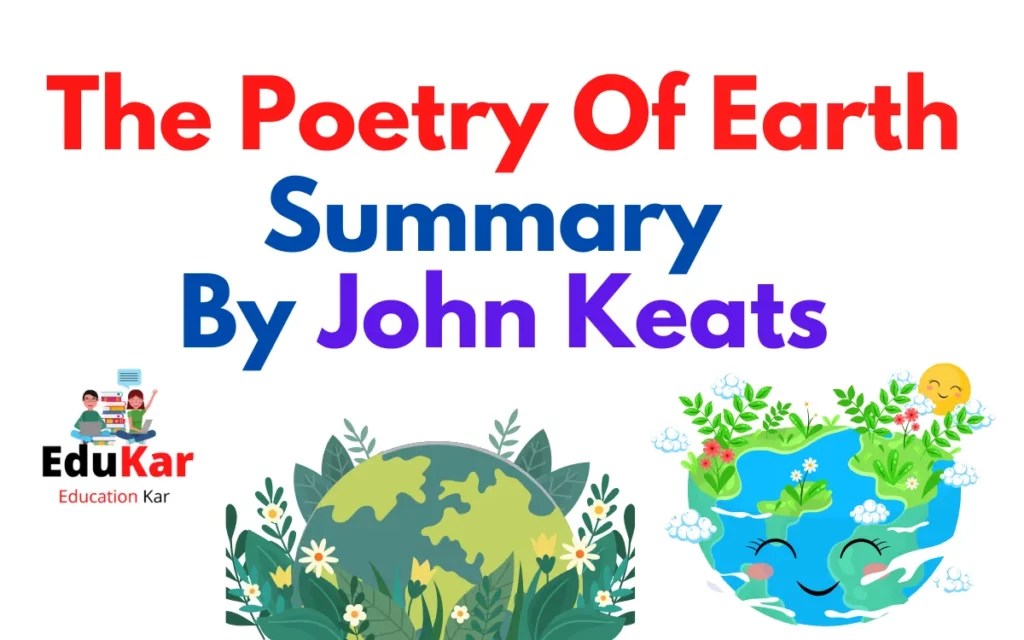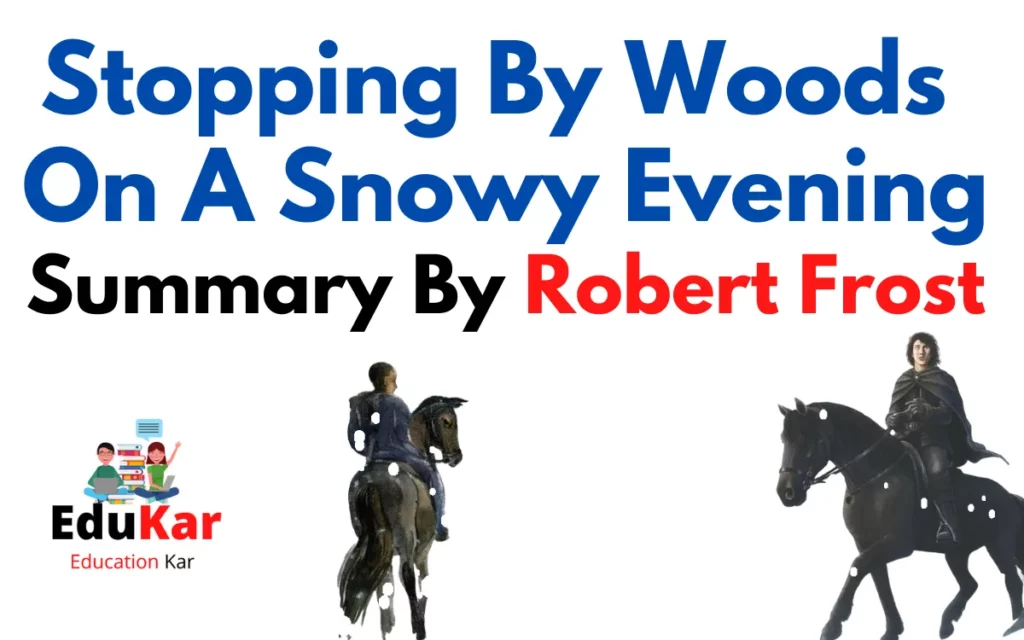Contents
- 1 Introduction
- 2 English Summary-My Heart Leaps Up
- 2.1 Lines 1–2
- 2.2 My heart leaps up when I behold
- 2.3 A rainbow in the sky:
- 2.4 Lines 3–4
- 2.5 So was it when my life began;
- 2.6 So is it now I am a man;
- 2.7 Lines 5–6
- 2.8 So be it when I shall grow old,
- 2.9 Or let me die!
- 2.10 Line 7
- 2.11 The Child is father of the Man;
- 2.12 Lines 8–9
- 2.13 And I could wish my days to be
- 2.14 Bound each to each by natural piety.
- 3 About The Author
- 4 Conclusion
- 5 FAQs

| Name | My Heart Leaps Up |
| Subject | English |
| Author | William Wordsworth |
Introduction
“My Heart Leaps Up” is a short poem by William Wordsworth that celebrates the joy and beauty of nature. The speaker expresses his deep connection to nature and his belief that our love for it is innate and everlasting. The poem reflects on the importance of maintaining a connection to nature throughout one’s life.
English Summary-My Heart Leaps Up
Lines 1–2
My heart leaps up when I behold
A rainbow in the sky:
In the poem’s opening lines, Wordsworth describes his response to a rainbow. It is clear that the poet has a strong connection to nature. “My heart leaps up,” he exclaims. This is an extraordinary response to a meteorological occurrence that happens frequently.
Although everyone agrees that rainbows are beautiful, in this poetry the rainbow represents all of nature. Wordsworth’s response is a little too strong. The majority of grown males do not respond to a rainbow with the same level of passion. But as the poem progresses, he will contend that we should all share his sense of amazement.
Lines 3–4
So was it when my life began;
So is it now I am a man;
The poet writes in these words that he has always responded viscerally and joyfully to a rainbow and to nature in general. His feeling of wonder started when he was born & continued throughout his childhood and adulthood. Wordsworth has always been a lover of the natural world.
The word “So” is used at the beginning of both lines. His point is emphasised by the employment of this literary device (anaphora). Also, it facilitates readers in understanding the internal connections between the meaning of these sentences.
Lines 5–6
So be it when I shall grow old,
Or let me die!
In these lines, Wordsworth goes a bit too far. First, he says he wishes to be fascinated by nature until he is very old. Then he adds, “Or let me die!” It is very clear from this perspective that the poet would rather die than find his surroundings boring and empty of beauty. Instead of turning into a jaded cynic who is unable to appreciate the wonders of nature, death would be preferable.
Line 7
The Child is father of the Man;
Perhaps the most significant line in “My Heart Leaps Up” is this one. In true Wordsworth form, he offers a metaphor that seems simple but yet carries a lot of weight.
The sentence has some meaning on that level because everyone has been a child at some point. The same way that children come from their parents, so do us. The bigger implication is that a child can be an excellent teacher & role model as a parent.
Youngsters always have the impression that they are seeing things for the first time. They are constantly in awe of nature and even life itself, and they never cease to be amazed by it.
Wordsworth is urging us to retain our sense of the world from childhood and to act in this way as children do.
Lines 8–9
And I could wish my days to be
Bound each to each by natural piety.
Wordsworth concludes the poem by restating his wish to remain in awe of nature in the final two lines. He wants the constant string of love for the world to run through every day. The phrase “natural piety” suggests that the poet revered nature to such an extent that witnessing a rainbow was nearly a spiritual experience.
About The Author
William Wordsworth (1770-1850) was a British poet and one of the most important figures of the Romantic movement in English literature. He was born in the Lake District region of England, which had a profound influence on his poetry, and he is often associated with the Romantic ideals of nature, imagination, and emotion.
Wordsworth began writing poetry at an early age and published his first collection, “Lyrical Ballads,” with Samuel Taylor Coleridge in 1798. The collection is considered a landmark of English Romantic poetry and helped to establish Wordsworth’s reputation as a major poet.
Conclusion
In conclusion, “My Heart Leaps Up” is a beautiful and lyrical celebration of nature and the joys it brings. Wordsworth’s poem reminds us of the importance of cherishing the natural world and of maintaining our childlike wonder and appreciation of its beauty.
FAQs
What is “My Heart Leaps Up” by William Wordsworth about?
“My Heart Leaps Up” is a short poem in which the speaker expresses his joy and appreciation for the natural world. He declares that his heart leaps up when he sees a rainbow in the sky, and he hopes that he will always feel that way.
What is the main message of the poem?
The main message of the poem is that the beauty of the natural world can fill us with joy and wonder, and that we should always be grateful for the opportunity to experience it.
What is the significance of the rainbow in the poem?
The rainbow is a symbol of hope and beauty, and it represents the wonder and awe that the speaker feels when he looks at the natural world. It also represents the continuity of life and the cyclical nature of the universe.
What is the tone of the poem?
The tone of the poem is joyful and appreciative. The speaker is filled with wonder and awe at the beauty of the natural world, and he expresses his gratitude for being able to witness it.
What is the significance of the line “The child is father of the man”?
This line means that our experiences as children shape who we become as adults. The speaker is suggesting that the joy and wonder he feels when he looks at the natural world is something that has been with him since childhood and will continue to be with him for the rest of his life.






![Grandma Climbs A Tree Summary [Class 10] By Ruskin Bond Grandma Climbs A Tree Summary](https://edukar.in/wp-content/uploads/2022/09/Grandma-Climbs-A-Tree-Summary-1024x597.webp)









